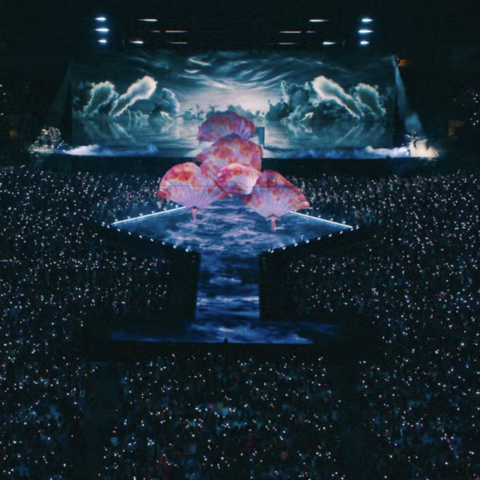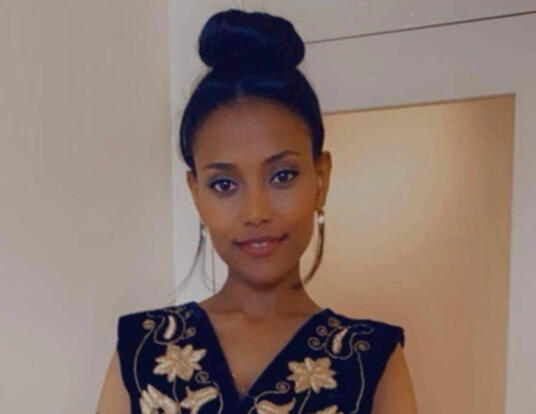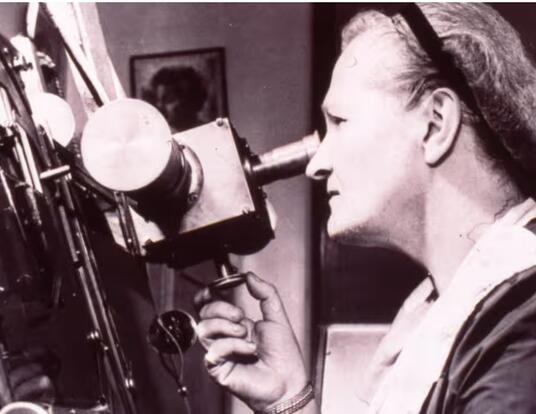The Art of Social Change
GSAS Voices: Becca Voelcker, PhD ’21
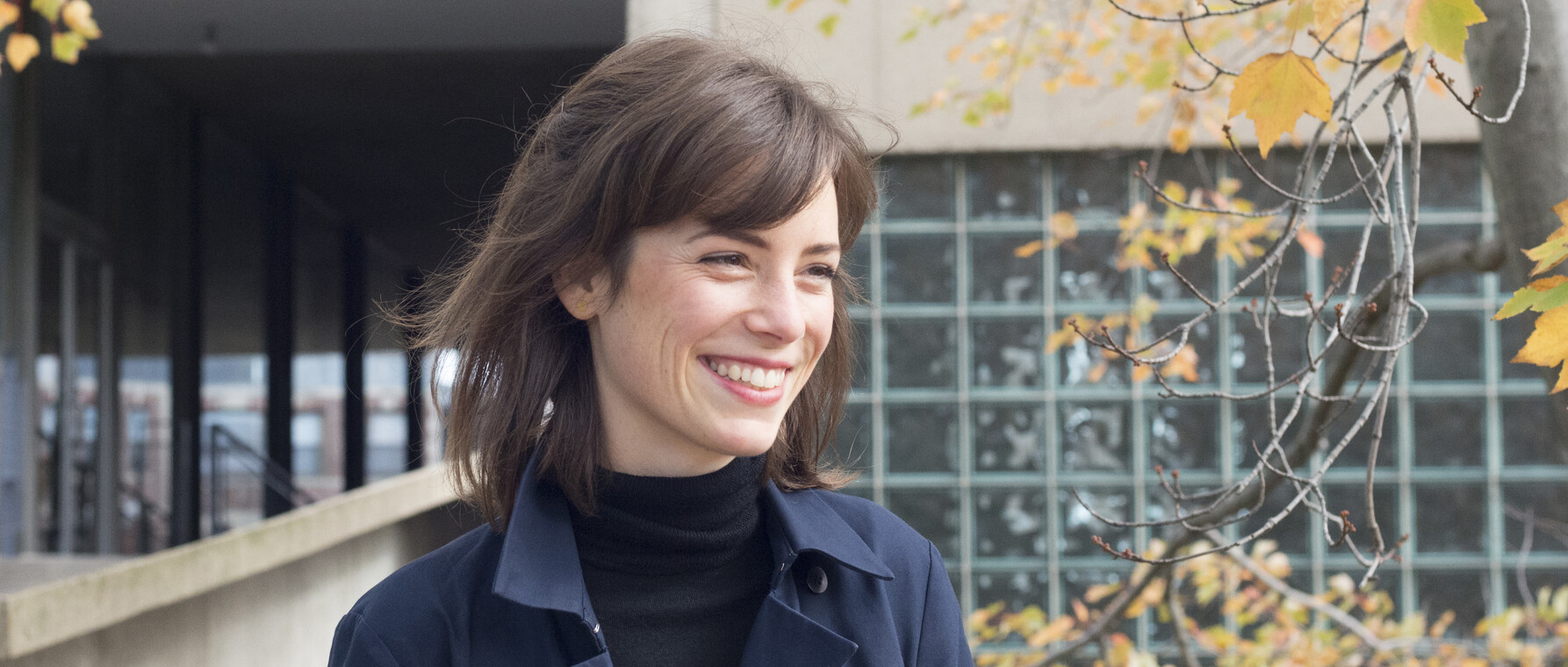
Throughout its 150th anniversary year, GSAS is foregrounding the voices of some of its most remarkable alumni and students as they speak about their work, its impact, and their experiences at the School.
Becca Voelcker is a lecturer in fine art at the University of London. She discusses how visual art can contribute to societal change, how environmental justice has shaped her work, and meeting her best friend at GSAS.
One Planet, Unfairly Shared
I am a film historian and cultural critic. I write about visual arts in relation to politics and climate. Whether I'm writing for books, magazines, or lectures for my students, my question is, “How can visual culture imagine the world differently and contribute to collective, structural change?”
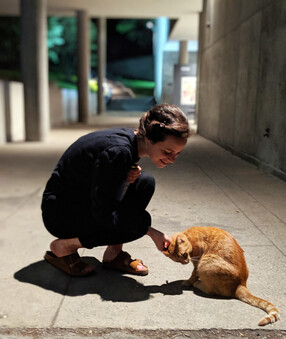
Increasingly, xenophobic nation states police their territories in the face of climate change and migration patterns, even though climate breakdown and its consequences affect everyone regardless of borders. Globalization, meanwhile, configures the world in a selective system of porosity and exclusion. So, borders are artificial impositions that entail very real social and spatial consequences.
I study multiple regions and their diasporas in a comparative approach that accounts for these geopolitical and planetary contexts. For example, when my PhD explored visual art in Japan, where I lived before moving to Harvard, it also required exploring the US because Japan’s post-war economy was heavily supported by American investment in a Cold War strategy to curb communism. More recently, my writing about a Congolese artist whose installations explore the extraction of earth minerals also entailed writing about Belgium as a colonial protagonist and contemporary site of diasporic activity. What these examples—along with climate breakdown—demonstrate, is that we all share one planet, but we don’t share it fairly.
Far from feeling dissuaded by such evidence, I am motivated to discover how climate breakdown has been produced by human behaviors, and how it fundamentally challenges them. In this challenge lie opportunities for repairing and reimagining our world more carefully.
Discovering Class
My doctoral studies at GSAS coincided with Trump's presidency and further escalations of right-wing extremism across the world. During this time, I gained a growing sense of political awareness—and alarm—reading Karl Marx’s Capital with a group of women in GSAS and watching the YouTube channel of David Harvey, a professor at the City University of New York who teaches Marx’s works. (These ideas continue to inform my thinking: I graduated in the middle of the COVID-19 pandemic, a period in which the world's ten richest men saw their wealth double. This year, amidst climate breakdown and an energy crisis, the oil companies BP and Shell have reported record profits.)
My discovery of Marx shaped my PhD dissertation, which was a global history of ecopolitical film titled Land Cinema in an Age of Extraction. It tracked the lives and works of filmmakers in the 1970s and ’80s who decried neoliberalism’s intensified drive for profit that exploited already vulnerable populations and polluted ecosystems. From farmer-filmmakers in northern Japan to gardener-filmmakers in Massachusetts, filmed elegies for agrarianism in Orkney to documentaries made with indigenous activists in Colombia, the project unearthed key examples of ecopolitical counterculture. Looking at these countercultural examples—which I incorporate into my syllabi now when teaching at Goldsmiths, University of London—I invite readers and students to ask, “What can we learn from ecopolitical experiments of the past to help achieve a better, more just future today?”
Friendship and the Art of Laughing in a Crisis
During my time at GSAS I met my closest friend, whose presence changed me through intellectual engagement, loving trust, and generosity. Even though we now live on different continents, we keep in touch daily by exchanging voice messages. Whether we're discussing some quirk within a philosophical text, reminiscing over the poetry workshops we took at Harvard with Jorie Graham, or encouraging each other to rest, dance, publish more, or make ice cream, our back-and-forth is a constant source of learning and fun.
Although we don’t have a record of our exchanges as we might in a previous era of pen-and-paper letters, they materialize in other forms, including the creative intellectual work we each produce. This year, for example, I’m working on a second book project called The Art of Laughing in a Crisis. The project stems from a feeling of frustration at the way climate breakdown is commonly represented in the media. As I’d complain to my friend, phrases about and images of global crisis, climate breakdown, irreversible tipping points, and sixth extinction risk would induce alarm, paralysis, and fatigue that close down thought. Developing this project by sharing voice-noted thoughts and references has been transformational; we are each other’s sounding boards, critics, and champions.
Hear Becca Voelcker talk about slow film and ecology on the BBC’s Arts & Ideas podcast.
Photos by Molly Akin and Courtesy Becca Voelcker
Get the Latest Updates
Join Our Newsletter
Subscribe to Colloquy Podcast
Simplecast


